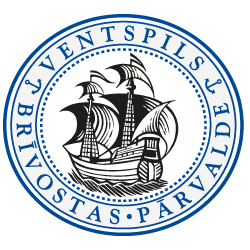News
Construction Begins on Oversized Cargo Logistics Corridor in Ventspils
This week, construction works have begun in Ventspils to adapt three intersections for the transportation of oversized ...Cargo Volume in the Freeport of Ventspils Increased by 14.5% in the First Six Months of 2025
In the first half of 2025, terminals operating in the Freeport of Ventspils handled a total of 4.48 million tons of ...Freeport of Ventspils Signs Cooperation Agreement with the Port of Chornomorsk, Ukraine
Today, on April 18, a Memorandum of Cooperation was signed in Ventspils between the Freeport of Ventspils Authority and ...
Freeport Services
Being the deepest port on the Eastern coast of the Baltic Sea, we are able to serve the largest ships, which enter the Baltic Sea. All you need for business is available 24/7 at the Freeport of Ventspils: 15 cargo terminals of all types, 19 shipping agencies, regular ferry connections to Sweden, tug, bunkering and other services.
For Investors
The status of Special Economic Zone, tax incentives, more than 700 hectares of free land available for industrial project development, integration into the TEN-T transport network, availability of skilled labor, the Freeport and the City Administration support are the basis for the establishment of new production facilities for the long-term growth in Ventspils.
Businesses currently in Freeport of Ventspils
Māris Daniševskis, Head of the PtX Department at SIA PurpleGreen Energy C: “We believe Latvia has strong potential to become an exporter of renewable energy. One of the most effective ways to export this energy is by converting it into molecules – such as e-methanol or green ammonia – and then transporting it using the infrastructure available at the Freeport of Ventspils. We highly appreciate the support provided so far by the Freeport of Ventspils Authority and the positive start to our collaboration, and we are working with great optimism to bring this project to life.”
Uldis Ālītis, Head of Project Development and Innovation at SIA PurpleGreen Energy C: “This project is of strategic importance not just for Latvia, but for the entire European Union in reaching the goal of net zero emissions by 2050.
The planned facility will operate with an installed power capacity of 550 MW, enabling the annual production of around 550,000 tonnes of green ammonia. The project could increase Latvia’s total electricity consumption by 65–70%. Additionally, this project is expected to provide a significant contribution to the national budget – approximately EUR 66.4 million in taxes annually.”
Member of the Board of Ventspils Welding Plant Jevgēnijs Lapkovskis:
– It is much easier to work in Ventspils than in Riga – less red tape and cooperation with the municipality make Ventspils attractive for us. One of the factors making the city unique is the ability to combine tourism and industry. The North Kurzeme Vocational Education Competence Centre offers training programs that are directly related to the company’s field of activity, e.g. Metalworking, Electronics, Mechanical Engineering Technology and others.


